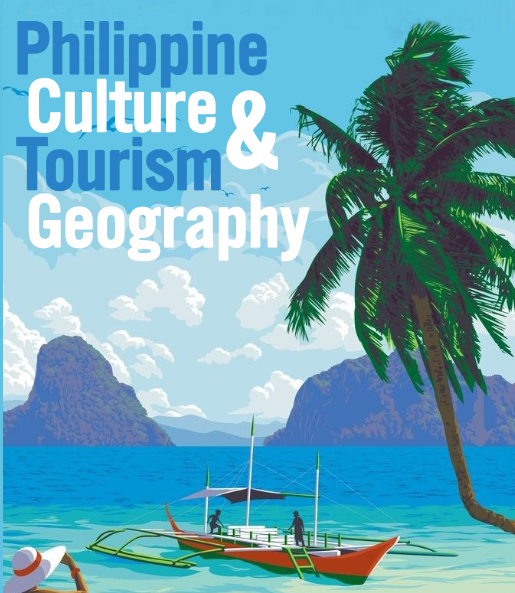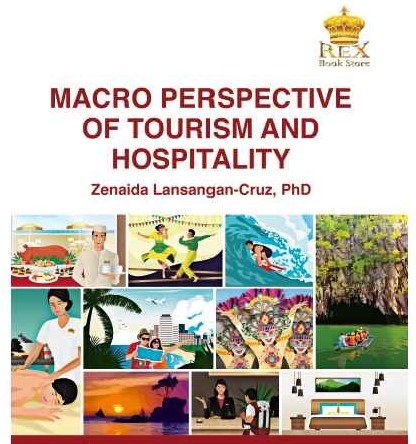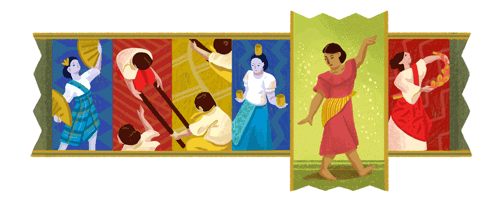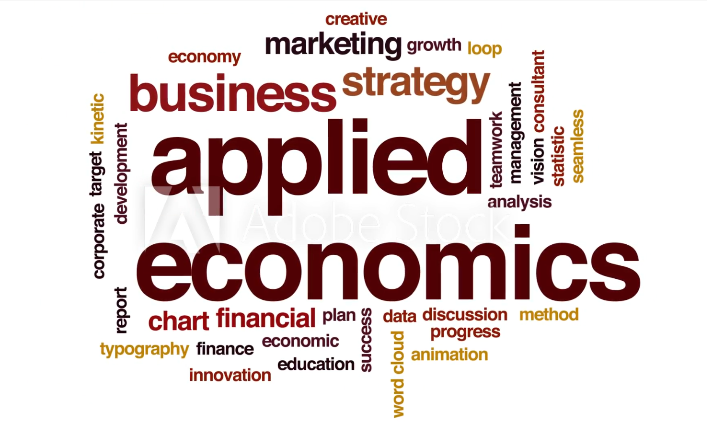This course presents comprehensive coverage of the major tourists’ destinations in the Philippines. Major discussions will be on political structures and subdivisions, geographical characteristics, major attractions, gastronomy, culture and traditions of the various regions of the country leading to the realization of the potentials of the tourism industry of the Philippines Students will also have a comprehensive knowledge about the mechanism, logistics, operations and management of the tourism network system in the Philippines with its inherent physical and cultural resources as seen in the various provinces of the country.

This course is designed to give a clear and whole overview of tourism
and hospitality that focuses on its history, background and impacts in
relation to economy, society and culture. It also illustrates the
effects of the convergence of tourism with the other local industries
and let the students appreciate its multiplier effect in various fronts.
Discuss the major factors that influence the history and future of
Hospitality in the world and in the Philippines.

This course aims to improve the English language proficiency of College Freshmen by learning critical grammatical structures necessary for communicative functions such as narrating, describing, and giving directions, and to acquire adequate vocabulary needed for academic study.
The National Service Training Program 2 (NSTP 102), complements knowledge learned from NSTP101. It is the application and implementation of NSTP Law, which focuses on participation to community development. While NSTP101 provides the backdraft and theoretical framework of the Program, NSTP102 is the continuation and validation phase. It is designed to equip and empower students with the fundamentals of project identification, planning and implementation in pursuit of contributing to the up-liftment of the general welfare and the quality of life of the people in the community through enhancement, in particular, of the school and community facilities.

This course discusses dancing as a form of physical activity. It will let you experience how dancing can become an effective way to maintain an active life for fitness and lifelong health. This course on dance will also introduce to you the different dances in the Philippines so that you may learn to appreciate them as indelible parts of Philippines culture. It will also teach you the rhythmical movements patterns involved in dance.
Specifically, this unit is all about Phases of Dance program and Festival Dance. It hoped that after learning about these types of dances, you will be able to choose a dance that will find your personal need and interest for your own physical fitness.
The unit start with an introduction on physical fitness and nutrition to prepare you for the dancing and related physical activities that you will engage in for entire school year. Then you will be introduced to traditional and modern dances as well as festival dance in recreational or competitive forms.

The course is designed to familiarize the students with the basic
concepts, principles, and processes related to business organization, and the
functional areas of management. Particular emphasis will be given to the study
of management functions like planning, organizing, leading, and controlling,
and orient the students on the importance of these functions and the role of
each area in entrepreneurship.

This course deals with the basic principles of applied
economics, and its application to contemporary economic issues facing the
Filipino entrepreneur such as prices of commodities, minimum wage, rent, and
taxes. It covers an analysis of industries for identification of potential
business opportunities. The main output
of the course is the preparation of a socioeconomic impact study of a business
venture.
